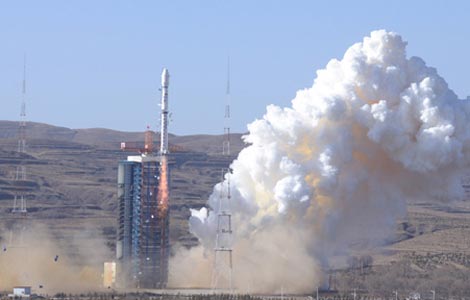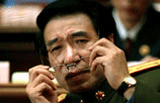China's position paper on South China Sea
Updated: 2014-12-07 10:20
(Xinhua)
|
||||||||
44. As analysed above, through bilateral and multilateral instruments, China and the Philippines have agreed to settle their relevant disputes by negotiations, without setting any time limit for the negotiations, and have excluded any other means of settlement. In these circumstances, it is evident that, under the above-quoted provisions of the Convention, the relevant disputes between the two States shall be resolved through negotiations and there shall be no recourse to arbitration or other compulsory procedures.
45. The Philippines claims that, the two countries have been involved in exchanges of views since 1995 with regard to the subject-matter of the Philippines' claims for arbitration, without however reaching settlement, and that in its view, the Philippines is justified in believing that it is meaningless to continue the negotiations, and therefore the Philippines has the right to initiate arbitration. But the truth is that the two countries have never engaged in negotiations with regard to the subject-matter of the arbitration.
46. Under international law, general exchanges of views, without having the purpose of settling a given dispute, do not constitute negotiations. In Georgia v. Russian Federation, the ICJ held that, "Negotiations entail more than the plain opposition of legal views or interests between two parties, or the existence of a series of accusations and rebuttals, or even the exchange of claims and directly opposed counter-claims. As such, the concept of 'negotiations' ... requires - at the very least - a genuine attempt by one of the disputing parties to engage in discussions with the other disputing party, with a view to resolving the dispute" (Application of the International Convention on the Elimination of All Forms of Racial Discrimination (Georgia v. Russian Federation), Preliminary Objections, Judgment of 1 April 2011, I.C.J. Reports 2011, p. 132, para. 157). In addition, the ICJ considered that "the subject-matter of the negotiations must relate to the subject-matter of the dispute which, in turn, must concern the substantive obligations contained in the treaty in question" (Ibid., p. 133, para. 161).
47. The South China Sea issue involves a number of countries, and it is no easy task to solve it. Up to the present, the countries concerned are still working together to create conditions conducive to its final settlement by negotiations. Against this background, the exchanges of views between China and the Philippines in relation to their disputes have so far pertained to responding to incidents at sea in the disputed areas and promoting measures to prevent conflicts, reduce frictions, maintain stability in the region, and promote measures of cooperation. They are far from constituting negotiations even on the evidence presented by the Philippines.
48. In recent years, China has on a number of occasions proposed to the Philippines the establishment of a China-Philippines regular consultation mechanism on maritime issues. To date, there has never been any response from the Philippines. On 1 September 2011, the two countries issued a Joint Statement between the People' s Republic of China and the Republic of Philippines, reiterating the commitment to settling their disputes in the South China Sea through negotiations. But, before negotiations could formally begin, the Philippines sent on 10 April 2012 a naval vessel to the waters of China' s Huangyan Dao to seize Chinese fishing boats together with the Chinese fishermen on board. In the face of such provocations, China was forced to take response measures to safeguard its sovereignty. Thereafter, China once again proposed to the Philippine Government that the two sides restart the China-Philippines consultation mechanism for confidence-building measures. That proposal again fell on deaf ears. On 26 April 2012, the Philippine Department of Foreign Affairs delivered a note verbale to the Chinese Embassy in the Philippines, proposing that the issue of Huangyan Dao be referred to a third-party adjudication body for resolution and indicating no willingness to negotiate. On 22 January 2013, the Philippines unilaterally initiated the present compulsory arbitration proceedings.
49. The previous exchanges of views regarding the South China Sea issue between the two countries did not concern the subject-matter of the Philippines' claims for arbitration. For instance, the Philippines cited a statement released by the Chinese Foreign Ministry on 22 May 1997 regarding Huangyan Dao, in order to show that there exists between the two countries a dispute concerning the maritime rights of Huangyan Dao and that the two countries had exchanged views with regard to that dispute. However, the Philippines deliberately omitted a passage from that statement, which reads: "The issue of Huangyandao is an issue of territorial sovereignty; the development and exploitation of the EEZ is a question of maritime jurisdiction, the nature of the two issues are different and hence the laws and regulations governing them are also different, and they should not be discussed together. The attempt of the Philippine side to use maritime jurisdictional rights to violate the territorial sovereignty of China is untenable." This passage makes clear the thrust of the statement: the Philippines shall not negate China' s sovereignty over Huangyan Dao on the pretext that it is situated within the EEZ of the Philippines. This shows that the exchange of views in question was centred on the issue of sovereignty.
50. It should be further noted that, the Philippines has attempted to show that the subject-matter of the exchanges of views between China and the Philippines since 1995 concerns the interpretation or application of the Convention, but nothing could be farther from the truth than this. Historically, the Philippines, by Republic Act No. 3046 of 17 June 1961, proclaimed as part of its territorial sea the vast areas of sea between the most outlying islands in the Philippine archipelago and the treaty limits established in the Treaty of Paris concluded between the United States and Spain in 1898, among other international treaties, thus claiming a belt of territorial sea far beyond 12 nautical miles. By Presidential Decree No. 1596 promulgated on 11 June 1978, the Philippines made its claim for sovereignty over the so-called "Kalayaan Island Group" (i.e., some maritime features of China' s Nansha Islands), together with the adjacent but vast areas of waters, sea-bed, subsoil, continental margin, and superjacent airspace. As conceded by the Philippines itself, only with the adoption on 10 March 2009 of Republic Act No. 9522 did it begin the ongoing process to harmonize its domestic law with the Convention, with a view to eventually relinquishing all its maritime claims incompatible with the Convention. That Act provided, for the first time, that the maritime areas of the so-called "Kalayaan Island Group" (i.e., some maritime features of China' s Nansha Islands) and "Scarborough Shoal" (i.e., China' s Huangyan Dao) "shall be determined" so as to be "consistent with Article 121" of the Convention (i.e., the regime of islands). Therefore, given that the Philippines itself considers that only in 2009 did it start to abandon its former maritime claims in conflict with the Convention, how could it have started in 1995 to exchange views with China on matters concerning the interpretation or application of the Convention that are related to the present arbitration?
51. The Philippines claims that China cannot invoke Paragraph 4 of the DOC to exclude the jurisdiction of the Arbitral Tribunal, given its own grave breach of the terms of the DOC. This is groundless. In support of its allegations against China, the Philippines claims that China has taken measures including the threat of force to drive away Philippine fishermen from the waters of Huangyan Dao in spite of their long-standing and continuous fishing activities in those waters, and that China has blocked the Philippines from resupplying a naval ship which ran and has stayed aground at Ren' ai Jiao and certain navy personnel on board. But the fact is that, regarding the situation at Huangyan Dao, it was the Philippines that first resorted to the threat of force by dispatching on 10 April 2012 a naval vessel to detain and arrest Chinese fishing boats and fishermen in the waters of Huangyan Dao. Regarding the situation at Ren' ai Jiao, which is a constituent part of China' s Nansha Islands, the Philippines illegally ran a naval ship aground in May 1999 at that feature on the pretext of "technical difficulties" . China has made repeated representations to the Philippines, demanding that the latter immediately tow away the vessel. The Philippines, for its part, had on numerous occasions made explicit undertaking to China to tow away the vessel grounded due to "technical difficulties" . However, for over 15 years, instead of fulfilling that undertaking, the Philippines has attempted to construct permanent installations on Ren' ai Jiao. On 14 March 2014, the Philippines even openly declared that the vessel was deployed as a permanent installation on Ren' ai Jiao in 1999. China has been forced to take necessary measures in response to such provocative conduct. In light of these facts, the Philippines' accusations against China are baseless.
52. While it denies the effect of Paragraph 4 of the DOC for the purpose of supporting its institution of the present arbitration, the Philippines recently called on the parties to the DOC to comply with Paragraph 5 of the DOC and to provide "the full and effective implementation of the DOC" , in a proposal made in its Department of Foreign Affairs statement dated 1 August 2014. This selective and self-contradictory tactic clearly violates the principle of good faith in international law.
53. The principle of good faith requires all States to honestly interpret agreements they enter into with others, not to misinterpret them in disregard of their authentic meaning in order to obtain an unfair advantage. This principle is of overriding importance and is incorporated in Article 2(2) of the Charter of the United Nations. It touches every aspect of international law (Cf. Sir Robert Jennings and Sir Arthur Watts (eds.), Oppenheim' s International Law, 9th ed., 1992, vol. 1, p. 38). In the Nuclear Tests Case, the ICJ held that, "One of the basic principles governing the creation and performance of legal obligations, whatever their source, is the principle of good faith. Trust and confidence are inherent in international co-operation" (Nuclear Tests Case (Australia v. France), Judgment of 20 December 1974, I.C.J. Reports 1974, p. 268, para. 46).
54. On this occasion, China wishes to emphasize that the DOC is an important instrument, adopted by China and the ASEAN member States following many years of arduous negotiations on the basis of mutual respect, mutual understanding and mutual accommodation. Under the DOC, the parties concerned undertake to resolve their territorial and jurisdictional disputes through friendly consultations and negotiations by sovereign States directly concerned. In addition, the parties reaffirm their commitment to the purposes and principles of the Charter of the United Nations, the 1982 Convention, the Treaty of Amity and Cooperation in Southeast Asia, the Five Principles of Peaceful Coexistence, and other universally recognized principles of international law which shall serve as the basic norms governing state-to-state relations. The Parties commit themselves to exploring ways for building trust and confidence in accordance with the above-mentioned principles and on the basis of equality and mutual respect; reaffirm their respect for and commitment to the freedom of navigation in, and overflight above, the South China Sea as provided for by universally recognized principles of international law, including the 1982 Convention; and undertake to exercise self-restraint in the conduct of activities that would complicate or escalate disputes and affect peace and stability including, among others, refraining from action of inhabiting on the presently uninhabited islands, reefs, shoals, cays, and other features, and to handle their differences in a constructive manner. The DOC also lists a number of ways to build trust and areas of cooperation for the Parties concerned to seek and explore pending the peaceful settlement of territorial and jurisdictional disputes. As a follow-up to the DOC, the parties have undertaken to negotiate a "Code of Conduct in the South China Sea".
55. The DOC has played a positive role in maintaining stability in the South China Sea, and in enhancing maritime cooperation, building trust and reducing misgivings between China and the ASEAN member States. Every provision of the DOC constitutes an integral part of the document. To deny the significance of the DOC will lead to a serious retrogression from the current relationship of cooperation between China and the ASEAN member States in the South China Sea.
56. As a member of the ASEAN and having been involved throughout the consultations on the DOC, the Philippines should have fully appreciated the significance of the DOC for the peaceful settlement of the disputes in the South China Sea through negotiations. At present, in order to maintain stability in the region and create conditions for peaceful settlement of the South China Sea issue, China and the ASEAN member States have established working mechanisms to effectively implement the DOC, and have been engaged in consultations regarding the "Code of Conduct in the South China Sea" . By initiating compulsory arbitration at this juncture, the Philippines is running counter to the common wish and joint efforts of China and the ASEAN member States. Its underlying goal is not, as the Philippines has proclaimed, to seek peaceful resolution of the South China Sea issue, but rather, by resorting to arbitration, to put political pressure on China, so as to deny China' s lawful rights in the South China Sea through the so-called "interpretation or application" of the Convention, and to pursue a resolution of the South China Sea issue on its own terms. This is certainly unacceptable to China.

 China, Brazil pledge to promote science, technology co-op
China, Brazil pledge to promote science, technology co-op
 ZTE, NBA team partners in business, charity
ZTE, NBA team partners in business, charity
 'Big' Peking opera staged in New York
'Big' Peking opera staged in New York
 250 Santas hit slopes for charity
250 Santas hit slopes for charity
 Jack Ma awarded Honorary Chairman of Zhejiang Chamber of Commerce
Jack Ma awarded Honorary Chairman of Zhejiang Chamber of Commerce
 2014 Yearender: Life underground
2014 Yearender: Life underground
 South China's 'little Africa'
South China's 'little Africa'
 Trending: Eiffel Tower replica in Hangzhou
Trending: Eiffel Tower replica in Hangzhou
Most Viewed
Editor's Picks

|

|

|

|

|

|
Today's Top News
Illinois university signs agreements with Chinese college
ZTE, NBA team partner in business, charity
Chinese investors in Brazil told to avoid risks
Economists call for increased public spending in China
Xiaomi's smartphone taps into US market
Peruvian product hit in Chinese market
Chinese role expected in Mexico's energy reform
Brazil film festival delights Beijing and Shanghai
US Weekly

|

|







